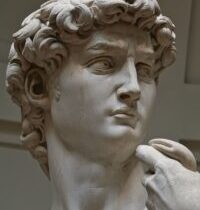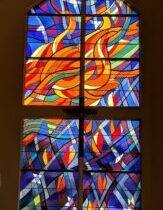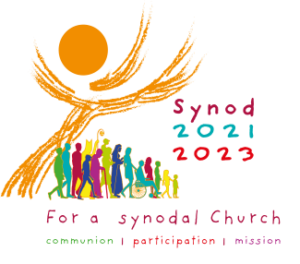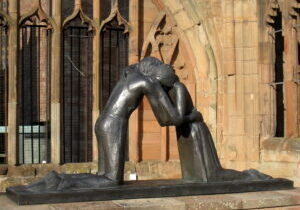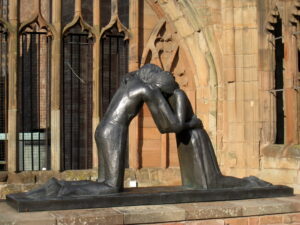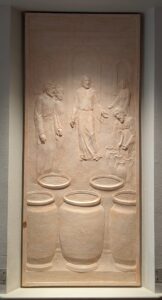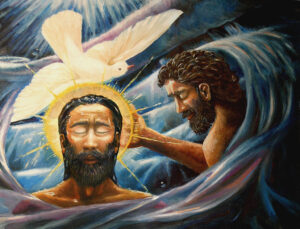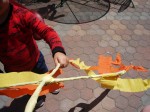Hard to be Humble?
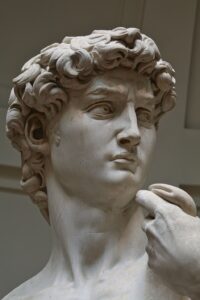 Well over forty years ago, my husband and I liked to go square dancing once a week. We were with a club of mostly older couples, though there were a few younger ones too. The caller was an older man, rather small, with plenty of grey hair – truly ancient… As is done in square dancing, he sang the words of the song, as he inserted the instructions telling us all what to do next in the dance.
Well over forty years ago, my husband and I liked to go square dancing once a week. We were with a club of mostly older couples, though there were a few younger ones too. The caller was an older man, rather small, with plenty of grey hair – truly ancient… As is done in square dancing, he sang the words of the song, as he inserted the instructions telling us all what to do next in the dance.
A new song at that time was It’s Hard to be Humble, by Mac Davis. We all enjoyed it as our caller sang the chorus, “Oh Lord, it’s hard to be humble, when you’re perfect in every way. I can’t wait to look in the mirror, ‘Cause I get better looking each day …” It went on in that vein for several lines, concluding, “Oh Lord, it’s hard to be humble, But I’m doing the best that I can!”
Humility, as exemplified in the song, is a tricky thing. There’s the false humility that has a person denying their talents and strengths, because speaking of them has brought, or might bring, charges of boasting. There’s the opposite of humility, in which people consider themselves or their talents to be so much greater than those of their peers that no one can possibly measure up to their standards. Humility does not mean denying one’s gifts and talents. Nevertheless, the fellow boasting of his humility in the song does not particularly impress his listeners as being all that humble.
Part of the challenge with humility is in the multiple meanings of the word when we use it in speaking of our relationships with God and with other humans. Sirach, a Jewish teacher of wisdom around 200 – 175 BC, wrote originally in Hebrew. When it was translated into Greek, the word for humility used is one that can include courtesy, gentleness, and consideration of the feelings of others as part of its meaning. It’s not just knowing one’s own strengths and weakness, it’s also being gentle and careful with the self-image and feelings of others.
Since humility is multifaceted, Sirach presents his insights through a series of proverbs. (Sir 3:17-18, 20, 28-29) He points out that those who behave with humility will be more loved than those who give a lot of gifts, but do it in a way that makes the recipients feel less worthy. It’s not necessary to seek wisdom in new ways of thinking or in philosophies from other cultures and traditions. Paying attention to the ways God reaches out through the lowly and through the wonders of nature will result in more fruitful growth in humility and wisdom. This is where the humility pleasing to God is to be found, because God is present with the poor. As the Psalmist points out, God is father of orphans, defender of widows, releaser of prisoners, and the one who provides a home for the needy and those who have been driven from their land. (Ps 68) It is with the humble of the earth that the blessings and rewards of humility will be found.
St. Luke presents Jesus speaking of humility in practical terms. (Lk 14:1, 7-14) Jesus has been invited to dinner at the home of a leading Pharisee, an influential man. Everyone is watching him closely to see what he will do. He, in turn, is watching the other guests, observing their efforts to select places of honor at the table. (The table was probably U-shaped, with the places of greatest honor being on the shorter side that joined the two longer sides. The places of lowest honor were at the far ends of the long sides.) As they select their places, Jesus tells them a parable – he presents a picture of a better way to behave both as guests and as hosts.
Imagine a wedding feast to which you have been invited, he tells them. Don’t make the mistake of sitting at the head of the table or other place of honor. If someone more distinguished arrives, you will be told to move to a place of less honor at the table. Do yourself a favor – select a place at the end of the table’s long sides. Then you may be the one instructed to move closer to the wedding party, to the places of honor. “For everyone who exalts himself will be humbled, but the one who humbles himself will be exalted.”
Then Jesus speaks to the host (and to the rest of us). Invite the folks who are normally ignored to celebrate with you at your banquets. They can give you nothing in return, but God will repay you on their behalf, because of the kindness you have shown, the humility of your service.
In all of this, it is God who lifts up and exalts those who act with kindness and compassion, those whose lives demonstrate humility.
The kingdom of God, according to the author of the Letter to the Hebrews, will be seen in “the city of the Living God, the heavenly Jerusalem.” (Heb 12:18-19, 22-24a) The old law was given to Moses in a terrifying manner at Mt. Sinai – with blazing fire, darkness, storms, and the blast of trumpets. The voice that spoke was terrifying and those who heard begged for it all to stop. But the new covenant is found at Mt. Zion, the heavenly Jerusalem. Angels are gathered at the festivities. So are those enrolled in heaven through baptism and those whose spirits have been made perfect through the experiences that purify their very lives. All are joined and reunited with God through the life, death, and resurrection of Jesus, whose blood “speaks more eloquently than that of Abel” (whose blood shed by his brother cried out to God from the earth).
It’s not easy to be truly humble. Fortunately, we get lots of opportunities to learn humility. As we come down off our pedestals and open our hearts to hear the stories of those around us, we grow closer to our God, who lives intimately with those at the bottom of our human societies. With quiet smiles, gentle words, patient listening, and generous hearts, we meet our God in those whom we encounter on our journey through life. May we be always open to receive God’s smile in return from those whom we serve.
Find the readings for the Twenty-second Sunday in Ordinary Time – Cycle C.



